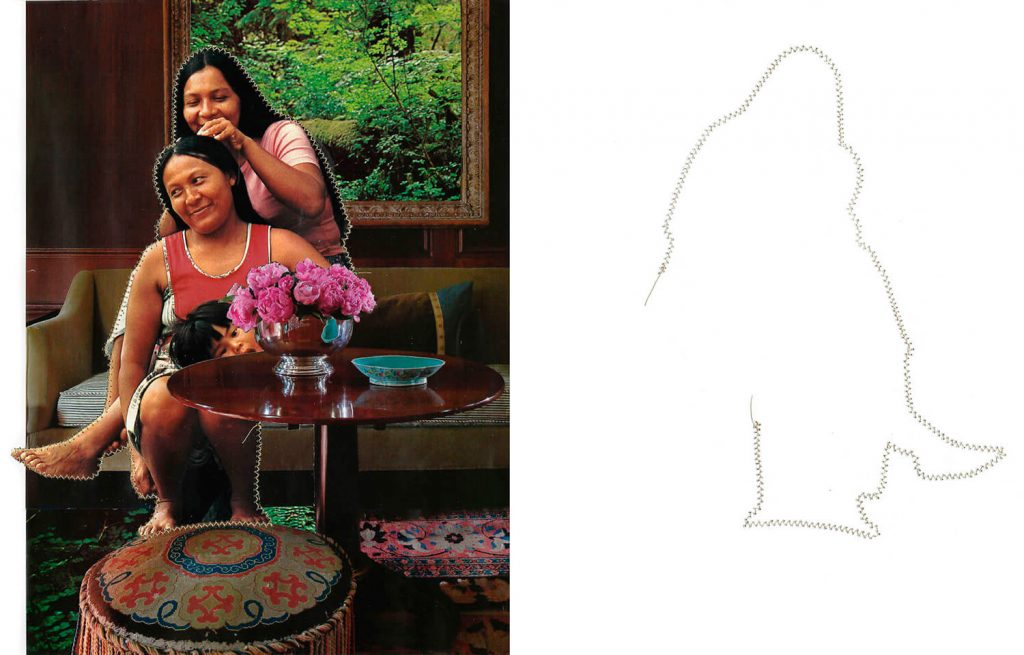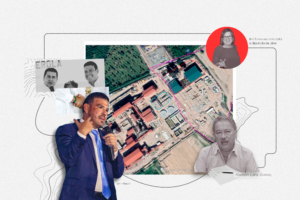In the last 12 years, only 28% of the loans granted by Honduras’ agricultural development bank (Banco Nacional de Desarrollo Agrícola – BANADESA) have benefited women. Seeking to survive domestic violence, female farmers have a hard time obtaining land and loans.
Doris Hernández looks at her crops which are ready for harvesting. She smiles when she talks about the squash which, after much effort, are thriving around her. Doris does not own a house. She wants to build it on the land where she has planted corn, beans, bananas, radishes and fruit trees, in addition to the squash. Her plot of land was given to her as part of a land reclamation process in San Pedro de Tutule, in the La Paz department of western Honduras. But the Honduran authorities can evict her any time they want.
Doris is an indigineous Lenca woman. She has survived sexual, economic and domestic violence. When asked if she wants to tell her story, she resolutely says yes – she doesn’t want to hide her identity. “It’s my story, my life,” she says. She’s 36 years old and has been farming since she was eight, forced to work by her stepfather who decided that she and her brothers would leave school to work on the farm. For the last two years, she has lived on rural collective land that provides some space for her to farm.
The rural collectives were formed by groups of Lenca indigenous communities who occupied lands that were not being worked by their owners. While some groups have communal lands that are titled to the indigenous communities, other groups are proceeding with a land reclamation process. These are lands that used to belong to the government or to the Lenca people, and were improperly titled to large landowners, according to indigenous rights groups.
They live in poverty, unable to obtain credit or technical assistance from the government. Although some groups have been farming their land for more than 15 years, they do not legally own it, which is a prerequisite for government assistance and loans.
Doris is a member of the November 5th rural collective, which includes 18 men and eight women. It came by this name two years ago, when this group of Lenca men and women occupied these unfarmed lands on that date. The collective is a member of a cooperative that is affiliated with the National Center for Rural Workers (Central Nacional de Trabajadores del Campo – CNTC).
CNTC members say that the San Pedro de Tutule land, where the November 5th and other rural collectives are located, belongs to former National Congress representatives, although they haven’t actually shown them any land titles. They also claim to have suffered “the criminalization of peasant communities in Honduras that has resulted in the murders of several leaders and the prosecution of 3,000 peasants, of which 2,000 belong to the CNTC.” So far, the November 5th collective has not been subjected to any legal action or eviction attempts.
Maria Vicenta Hernandez is 38 years old and has been a subsistence farmer in the Nuevo Amanecer collective for the past 12 years. She says that she’s never been able to get any government loans because women who are part of a land reclamation process are being denied titles to their land. “Even though news reports say that the government is helping us, we don’t get any support from them. If you come here, you’ll see that it’s all a lie,” complains Hernández.
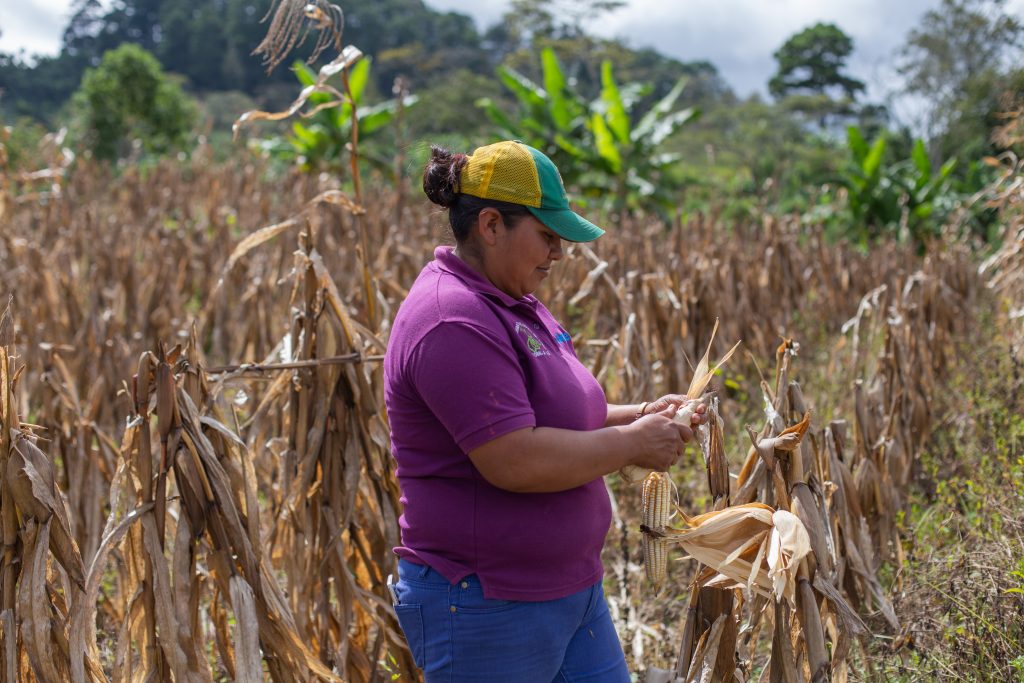
Doris hasn’t received any government loans either, nor any assistance such as fertilizer, seed capital or technical instruction. Vicenta lost some of her crops after the heavy rains of Tropical Storm Eta hit Honduras on November 4. Eta seriously damaged northern Honduras and also caused landslides in several mountainous areas of La Paz. At least 60 CNTC member families in La Paz lost all or part of their crops, although they still haven’t been able to assess the full magnitude of the damage. Because they’ve never had any help in the past recovering from the storms, they don’t expect any now.
CNTC representative Dalila Aguilar says that women live with constant psychological stress.
“Women live their lives in modest homes, always worried that they could be evicted at any moment. They’re always stressed about the landowners and the government, which doesn’t really care if they ever get titles to their land.”
According to the Study on Women and Land in Honduras by the Council for the Comprehensive Development of Rural Women (Consejo para el Desarrollo Integral de la Mujer Campesina – CODIMCA), data from the National Agrarian Institute (Instituto Nacional Agrario – INA) indicates that only 22.87 percent of the land titles issued between 2001 and 2017 were granted to women. The report also notes the slow progress of the land titling process, as only 5,020 hectares have been titled each year for the past 16 years.
Contracorriente also requested data from INA on the number of land titles issued over the last 10 years, stratified by the gender of the beneficiary. INA still has not fulfilled our information request, and an appeal filed with the Institute for Public Information Access (Instituto de Acceso a la Información Pública – IAIP) is still pending.
The CODIMCA report notes that the percentage of women who own land has increased in recent years. This is especially notable when comparing data from the 1979 agrarian reform. At that time, women only owned 4% of the land, which has risen to 8% today. In addition, 5% of the land is co-owned by men and women. In 1979, this modality did not exist.
Nevertheless, the report clarifies that “due to the incomplete statistical database and the methods used for field data collection, it’s impossible to determine the nature of a woman’s claim of land ownership. That is, whether a woman claims to own a plot of land because a rural collective, her husband, or another person have granted her rights to use and benefit from land belonging to someone else, or whether she simply rents the land or has a sharecropping agreement.”
Doris says that the members of her rural collective at first found it difficult to listen to its female members. Once, when she had to hire some men to work in her field, “They asked me if it belonged to my husband, and wanted to get rid of me,” she said.
The men began to take Doris and her companions seriously as a result of a CNTC project led by Dalila Aguilar to empower women in La Paz to use the judicial system to stand up for their rights and lands. This project is funded by Trocaire, the official overseas development agency of the Catholic Church in Ireland.
Aguilar says that her support for the women fighting for land rights has been frustrating, as she has often seen how they are the ones doing the work, and then ultimately the men’s names end up on the land titles. “It’s discouraging when we can’t help women achieve their goals. Sometimes it seems that even our dreams for these little plots of land are being snuffed out by other people,” she says.
Wendy Cruz, from the Honduran chapter of La Vía Campesina, an international peasants’ movement, says, “We are not viewed as having rights, which is why there are no policies to provide access to productive goods for rural women. There is absolutely no government presence where the country’s poorest women live.”
Yasmín López is a coordinator for CODIMCA, the organization that published the study on women and land in Honduras. She observes that this situation has evolved out of the government’s historical debt with women, starting with the agrarian reform of the 1970s. “There is no public policy today that guarantees reform. What exists is an agrarian modernization law that does not even mention access to land, and instead enables the privatization of the country through the purchase and sale of land,” she said.
According to Article 79 of the 1992 law for the modernization and development of the agricultural sector (Ley para la Modernización y el Desarrollo del Sector Agrícola) that replaced the old Agrarian Reform Law, “Property title will bear the names of both partners in a couple, if requested.” For López, this is one of the obstacles to female land ownership. “Since this is a patriarchal and capitalist system, it’s hard for a man to ask that his land title include his wife’s name as well.” She adds that not having title to the land is the main reason why women can’t obtain loans from private banks or other government institutions.
Contracorriente requested an interview with Rosaura García, INA’s coordinator for women’s affairs, who denied our request saying she was on vacation. García informed us that INA’s planning office could help explain some of its efforts and limitations. We contacted Danilo Merlo, the coordinator for this planning office, but he did not respond to our messages, phone calls and in-person requests for an interview through the INA’s communications office.
Limited access to agricultural loans for women
BANADESA issued 27,500 loans between 2008 and September 25, 2020. Only 7,555 (21.86%) were issued to women.
In 2015, lobbying by peasant and feminist organizations pushed the National Congress to approve a lending program for rural women called Solidarity Credit for Rural Women (Crédito Solidario para la Mujer Rural – Credimujer). Three more years went by before a regulation was created in 2018 to implement the lending program.
According to the 2018 regulation, the Credimujer program must have a national scope, and focus on communities with high levels of poverty and with high agro-ecological vulnerability. The Credimujer loans would be issued through the Honduran Bank for Production and Housing (BANHPROVI).
BANHPROVI responded to our information request for this report that no Credimujer loans have been issued to date, five years after the 2015 lending program was created.
In August 2019, BANHPROVI opened five locations to serve women in Tegucigalpa, Choluteca, La Ceiba and San Pedro Sula. “But rural women don’t live near these cities,” said CODIMCA coordinator Yasmin Lopez. “Not only do they have to travel long distances to the BANHPROVI locations, but they have to provide investment plans, business plans, and a lot of other things. Even when the women were able to prepare and present these plans, BANHPROVI said it wasn’t their responsibility to approve them. Women haven’t been able to access financing through that program,” she said, adding that although there is a budget allocation of 35 million lempiras, there is no political will to create a trust to administer these funds.
The Credimujer program was created by Decree 110-2015, which states that the program will be administered through a trust established by the Ministry of Finance and BANHPROVI. Currently, the management of this trust is the responsibility of the government agency for entrepreneurship and small business (Servicio Nacional de Emprendimiento y de Pequeños Negocios – SENPRENDE), a decentralized agency created in July 2019 by presidential directive PCM 034-2019. The peasant organizations we spoke to told us that they haven’t had any communication with this agency, and that they cancelled an October event intended to obtain information about the Credimujer program because no one from the government replied to their invitation to attend.
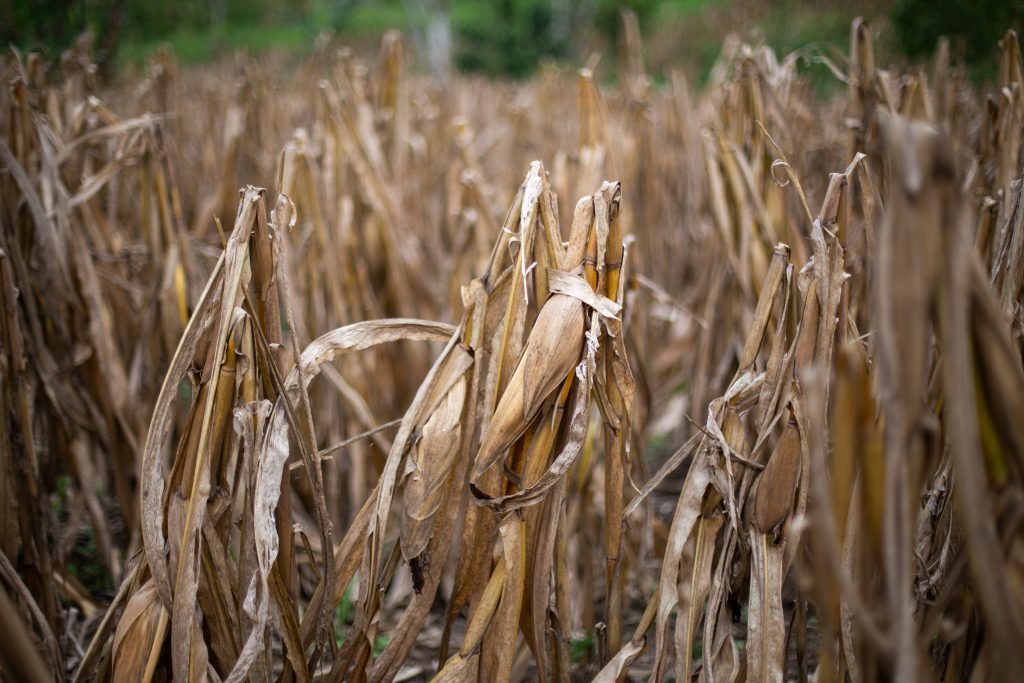
“We’re concerned because we want loans for women right now, and there is no response from the government. Women like us are denied our rights every single day,” says Felicita López, women’s coordinator for the Lenca Indigenous Movement of La Paz (Movimiento Indígena Lenca de La Paz – MILPAH). Two years ago, four groups of women from MILPAH developed project proposals to obtain Credimujer loans for coffee growing and retail stores, but they’ve received no response to these proposals.
SENPRENDE also includes Solidarity Credit (Crédito Solidario), a presidential program created in 2015 which provides technical assistance and credit to microbusinesses that are unable to obtain credit from the private banking system. Its programs include agricultural loans with a 12% interest rate, and “… direct support to peasant production cooperatives or collectives, agricultural cooperatives, rural savings and loan banks, associations of producers, and independent producers,” according to the program’s investment plan.
Contracorriente requested data from Crédito Solidario regarding the loans it has granted, stratified by gender. At the time of publication, our appeal to IAIP regarding this information request was still pending. The Crédito Solidario website indicates that the program has granted a total of 177,522 loans amounting to 1.72 billion lempiras (US$68 million), but there is no data published on loans granted to the agricultural sector.
These agricultural credits were authorized in September 2019 under executive decree PCM 052-2019, which allocates almost four billion lempiras ($160 million) to the Honduran Armed Forces (Fuerzas Armadas – FF. AA.) to promote agricultural development in Honduras. According to media reports, the Armed Forces claims to have received only 22 million lempiras (US$880,000) for this initiative. However, the organizations interviewed for this article told us that they have not been able to obtain any financing under this initiative, and neither have the women they work with.
“We’re concerned that the Armed Forces is managing these funds, knowing that the military has been one of our main adversaries. When will we ever get an opportunity? Probably never,” says Felicita López, who helps her community obtain financial assistance, among other responsibilities. In her job at the Santa Elena municipality’s office for women, she says that most of the child support complaints she receives are against military men.
During the COVID-19 pandemic, the government issued several executive decrees aimed at stimulating the agricultural sector. PCM 030-2020 allows granting government land concessions for 100 lempiras (US$4) per block (approximately 2.5 acres) for agricultural production.
Similarly, the World Bank approved US$75 million in funding to strengthen the agricultural sector through the Rural Competitiveness Project (Proyecto Competitividad Rural – COMRURAL), to be managed by Strategic Investment of Honduras (Inversión Estratégica de Honduras- Invest-h). Invest-h is a strategic project and program management government unit that is being investigated by the Honduran Attorney General for alleged irregularities in pandemic-related procurements.
From 2019-2020, Invest-h granted 31,296 agricultural loans. Of these, 8,442 (27%) were granted to women. Invest-h did not provide details about the loan amounts. The department of La Paz is near the bottom in the number of Invest-h loans received. According to information from the Ministry of Agriculture and Livestock (Secretaría de Agricultura y Ganadería – SAG), it has carried out 17 projects since 2010 that benefit rural women, but none in La Paz.
The SAG does have units to promote gender equality, but admitted in an official document sent to Contracorriente that “they tend to have low profiles, few resources and capabilities, and are far removed from high-level decision-making … they have never had specific programs to implement. In addition, the people responsible for gender issues also have other responsibilities.”
The SAG also had a coffee-growing incentive program from 2018- 2019. According to its data, the program benefited 19,339 women and 72,087 men.
Project funding amounted to 300 million lempiras (US$12 million). Each bag of fertilizer cost 540 lempiras, including operating expenses and delivery. The project information does not indicate the quantities of fertilizer delivered, stratified by gender.
Doris hopes to grow her own coffee one day. She has worked for many years harvesting coffee for male coffee plantation owners. She is paid 100 lempiras (US$4) for a quintal (about 46 kilos). A day’s work begins at 6 a.m. and ends at 2 p.m., during which she can harvest up to four quintals. The coffee harvest only lasts six months, and Doris says that she’ll save as much as she can to buy fertilizer at the end of the harvest, so she can grow her own coffee next year. To do this means “going without eating for days at a time. If you want something, you just have to put your mind to it.”
Everything is much harder now with the government’s COVID-19 restrictions, where people can only leave home on certain days of the week according to their identification numbers. When she is not working on her own land or harvesting coffee, Doris goes into the city of La Paz to wash and iron clothes. She’s paid 20 lempiras (US$0.80) for every 12 items washed, and another 12 lempiras (US$0.48) for ironing them. “If I have enough time to wash about five dozen items, then I can earn 100 lempiras (US$4), but the most I’ve ever earned in a day is 150 lempiras (US$6). It’s not much, and I have to go house to house looking for work. Women sacrifice a lot to raise their children here,” she says.
Violence in the lives of rural women
Doris left home after telling her family she was raped at age 15 and becaming pregnant. No one believed her. After that, she had four more children with a partner who abused her physically, psychologically, and economically for years.
“When I first experienced violence, I thought it was normal, because I grew up seeing how my mother was abused,” says Doris.
Doris lived in a crude mud and straw house on her brother’s land until the house fell down last year. She now lives in her mother’s house, which is on the same piece of land. Now that her brother has told her to leave, she wants to build her own house on land belonging to the rural collective. She doesn’t feel comfortable at her mother’s home. “The person who abused me lives nearby. Sometimes I start thinking that I can’t keep living like this … seeing his face all the time … you can’t forget something like that, no matter how much you want to,” she said.
Many women in the area live much like Doris, trying to survive violence and economic inequality, and raising children alone. That is why many end up joining rural collectives.
Doris cries and hides her eyes under her cap as she tells us how alone she feels, “I work in the fields alone, with my own hoe and machete. Every now and then those bad memories return. Sometimes it seems that my life isn’t worth living.” Doris lives alone with her children after leaving her ex-partner when the violence was becoming more frequent. She realized this when her older son told her, “Mommy, Daddy is going to kill you someday.” She finally decided to move out when her partner tried to rape his own 14-year-old stepdaughter.
The Ministry of Justice’s data on sex crimes from 2014-2019 shows that of the 4,130 cases where the occupation of the accused was recorded, 2,630 were farmworkers.
Doris says even after they had been separated for some time, her ex-partner would come around, shoot his gun near her feet or face, and sometimes hit her with a machete until she finally left him for good. She hasn’t heard from him in eight years. “I prefer to keep working and fighting for my children. What good does it do me to stay at home eating beans if I end up in the cemetery and my children are orphaned? I don’t need a man who just wants to order me around all the time – I like to work,” she says.
Rosmery Álvarez, from the Office for Women in Marcala municipality, about 39 kilometers from San Pedro de Tutule, points out that sexism is rampant in rural areas like La Paz.
“Domestic violence is something we live with every day, and it’s even worse now with the pandemic. The COVID-19 curve we experienced was paralleled by an increase in domestic and intra-family violence.”
The Comayagua regional office located 23 kilometers from La Paz, functions as the coordinator for the public prosecutors that cover the departments of Comayagua, Intibucá and La Paz. It was the first of the five public prosecutors’ offices to have a specialized unit for comprehensive care (Módulo de Atención Integral Especializada – MAIE). This unit has a multidisciplinary team to care for victims so that they only have to tell their stories once, and thus avoid re-victimization.
Some complain that the MAIE only operates from 8 a.m. to 4 p.m.. “But the Ministry of Justice is a 24-hour institution. There is always a unit on duty, with a medical examiner to assess cases and prosecutors who can either take action or order a police investigation,” said Carlos Avila, regional spokesperson for the Ministry of Justice, in response to these complaints.
So far this year, the attorney general has prosecuted 137 cases of domestic violence and intrafamily violence in the department of La Paz this year. Doris tried to file a complaint with the La Paz police, and was told that she needed evidence for them to press charges. “What evidence could I provide? I’m the only one who really knew what I was suffering … He would abuse me, push me around, tell me that I was worthless, that no one wanted me anymore,” she said.
The CODIMCA coordinator says that access to resources, land, financing and technical assistance improves women’s lives and reduces instances of domestic and intrafamily violence. It’s often difficult for women to pursue legal action against their abusers because of their financial dependence on them.
The neverending struggle for child support
There is no law or crime in Honduras pertaining to economic violence. The term only appears in the Law against Domestic Violence, which recognizes it as one of the four forms of domestic violence. It’s defined in that law as “an impairment, reduction or denial that affects a woman’s income, or an instance of noncompliance with child support obligations.” However, the law does not establish specific penalties, and only stipulates that the perpetrator must reimburse expenses and make reparations for damages sustained to the victim.
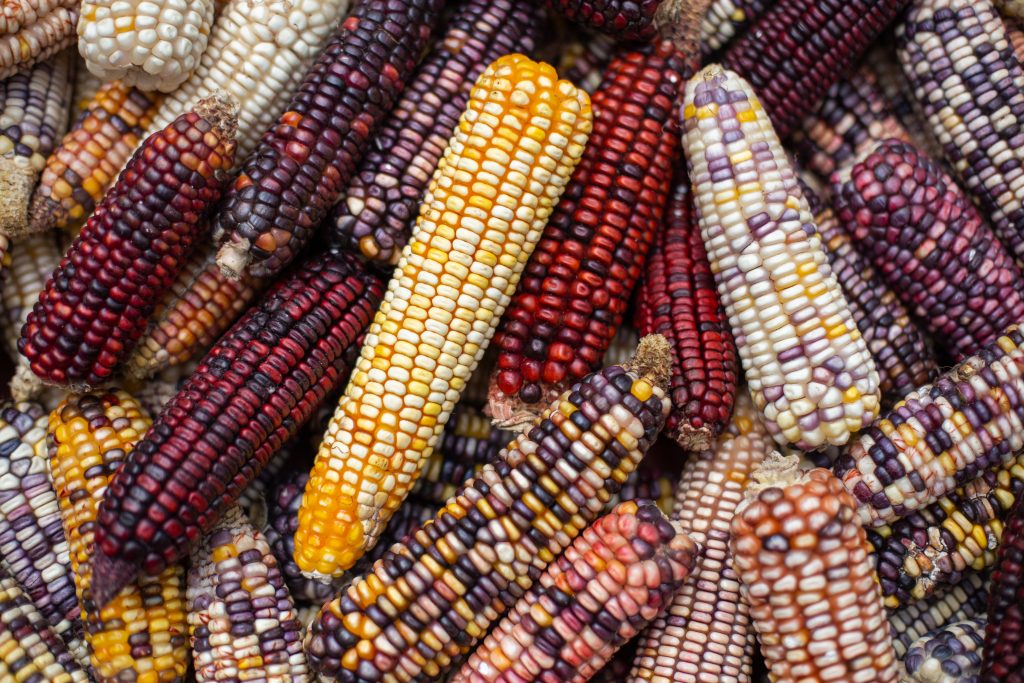
In addition, there is no data on how many of these cases of economic violence have been presented to the domestic violence courts. “This is because these cases usually involve more serious charges, such as physical abuse … but most women who experience economic violence don’t report it because they don’t know it’s a crime,” says Judge Claudia Isbela López, who presides over the Special Court for Domestic Violence in San Pedro Sula.
Contracorriente contacted Judge Ana Concepción Romero, the coordinator of the Domestic Violence Courts, for an interview about economic violence and its incidence in Honduras, but we have not yet been granted an interview.
Doris experienced economic violence while she was still with the father of her children. Although she was the one who earned the family’s income harvesting coffee, about 1,200 lempiras (US$48) a week, her partner kept most of it to buy alcohol.
“When I was with him, I had to work to feed his three children and my five children. I’m better off now because I know what my responsibilities are. My children wear shoes and clothes, and if they get sick, I take them to the doctor. I am both father and mother to them,” says Doris.
She hasn’t even considered filing a child support claim against her former partner because she doesn’t want him near her children ever again.
Although there are special courts for domestic violence in Honduras, their jurisdiction does not extend to the country’s rural areas. Domestic violence cases are heard by justices of the peace, which, according to Judge Claudia Isbela Lopez, makes it difficult to obtain justice. “Women in rural areas have different needs. They usually have lower levels of education and a weaker understanding of their rights,” she says.
MILPAH’s Felicita López lives in a community near Santa Elena, 65 kilometers from Marcala. Things get even more difficult the further you get from the departmental capitals, she says. Although she is assisting with several child support cases, “the authorities don’t hold the fathers of babies responsible, and many victims say that the lawyers ignore them. There is only a response when the victim is assisted by someone like me.” Felicita adds that the Santa Elena justices responsible for hearing cases usually turn domestic violence victims away when the coordinator for the justices of the peace is not present.
Honduras’ domestic violence law classifies the failure to provide child support as economic violence, not as a crime. Child support cases are covered by family law and are handled by family courts.
According to Honduran family law, the amount of support is established for each individual child and depends on the financial means of the responsible party. “Once the child support requirements are established, we apply a wage garnishment. When they come to the settlement hearing, they can agree and commit to the child support payments. If there is no settlement, or if we think that they are hiding assets, then we proceed with criminal charges,” says Ilde Mejía, coordinator of the Family Law Court in Francisco Morazán.
Rosmery Álvarez, from Marcala’s Office for Women, notes that laws don’t always help women get the justice they seek. “Unfortunately, laws are written at a desk, but women like me in these deeply rural areas live a different reality. Men just don’t accept responsibility. Even if they come to the initial hearing, it’s just a settlement hearing – the laws themselves become obstacles for us. Lawyers look for the easiest way out and pressure women to settle,” says Alvarez.
Carlos Ávila, the regional spokesperson for the Ministry of Justice, informed us that “in cases where there is an ongoing failure to meet child support obligations, a lawsuit can be filed for the crime of failing to comply with the care and support responsibilities.” In the penal code that was superseded in June 2020, this crime was called non-compliance with financial assistance obligations. Like the old penal code, the new one stipulates a sentence of one to three years of service to the community or to the victims. If a public official is found guilty of this crime, the penal code stipulates a sentence of one to two years in fines, and is barred from holding public office for five years.
Ministry of Justice data obtained by Contracorriente reveals that from 2009-2019, the ministry handled 8,887 cases of failure to fulfill economic assistance obligations. In 93.7 percent (8,325) of these cases, the accused was a man. During that same period, 1,156 of these cases went into the court system; women were the defendants in only three of them. Only 193 cases ultimately went to trial: 112 resulted in convictions, 70 resulted in acquittals, and 11 cases were dismissed.
Doris decided not to press charges against her former partner for domestic violence. Judge Lopez says that there are no mechanisms for women to avoid having to face their abusers, even though the domestic violence law contemplates this issue. “Another difficulty is that they don’t even have enough money to move away, and the institutions tasked with helping them are not adequately trained. In their pursuit of justice, these women are shamed over and over again by public officials,” said the judge.
“I didn’t say anything – I was kind of blind to a lot of things. Not any more. If I knew then what I know now, I wouldn’t have let anyone mistreat or manipulate me, or violate my rights. That’s not a life,” Doris says. She says she’s happy to have broken free from that cycle of violence, and is visibly emotional when she talks about her work on the farm to support her family.
Access to land, credit and technical assistance are essential to transforming gender relationships, but also to ensuring the economic stability that will allow women to break out of the cycles of violence.
“It’s difficult, but we’re moving ahead. One day we’ll get there, thank God,” says Doris. She’s not just talking about the peace stolen from her for so many years by violence, she’s also talking about the daily struggle to recover the land that inequality and the lack of policies protecting rural women have denied her.
As she finishes telling her story, Doris leans up against a tree and looks with pride at the crops that are almost ready to harvest. She hopes it will feed her family for the rest of the year. She can’t keep from smiling when she looks at her little plot of land, and says. “Isn’t it nice to see what the land produces? Would you like a squash to take home?”
*** “Outposts of Silence” (Estación del silencio) is a transnational project coordinated by Agencia Ocote, which investigates and analyzes violence against women in Mesoamerica. This is the third report in the series by the following organizations: Agencia Ocote (Guatemala), El Faro (El Salvador) and Contracorriente (Honduras).
Supported by the Foundation for a Just Society, the Oak Foundation and the Fondo Centroamericano de Mujeres.

